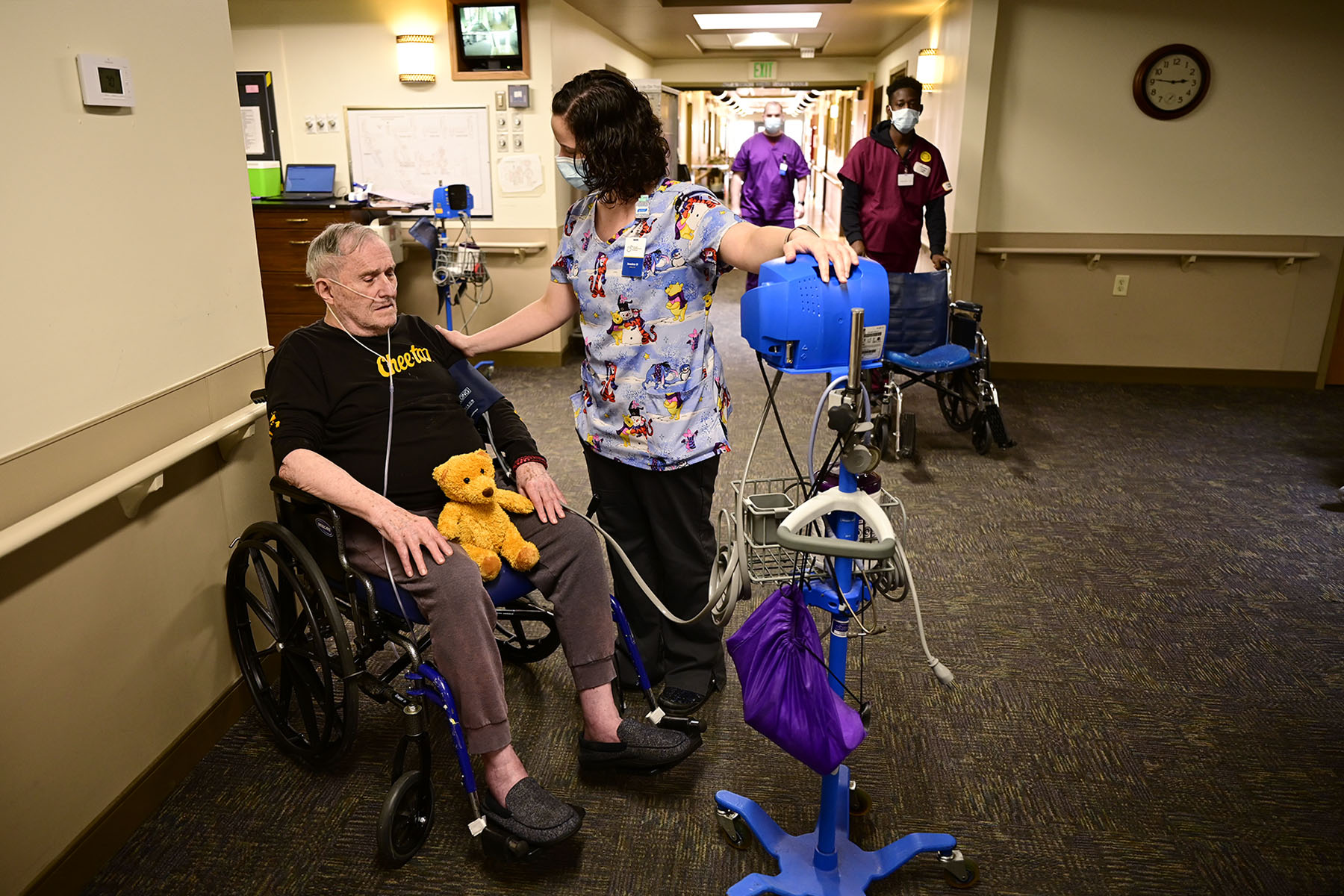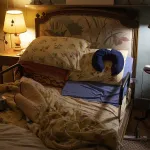Your trusted source for contextualizing the news. Sign up for our daily newsletter.
The Biden administration’s decision to end the federal COVID-19 vaccine mandates for health care workers — particularly those working in nursing homes — runs counter to research about the continued need for caution and the risks to residents, disability and aging advocates and researchers say.
On May 1, the administration announced the end of the COVID-19 Public Health Emergency on May 11. They also announced the end of most federal mandates involving the COVID-19 vaccine. Officials have not yet announced an end date for the vaccine mandates and it is unclear how long the rulemaking process around it will take.
A Centers for Medicare and Medicaid Services spokesperson told The 19th that more details would be shared “soon” and that while the mandate is ending, the agency still strongly recommends everyone stay up to date with their COVID-19 vaccinations. The mandate was originally set to expire in November 2024.
Nursing homes have borne the brunt of the COVID-19 pandemic. COVID-19 cases and deaths remain a problem in nursing homes, although not as much as in 2020, when bodies literally stacked up and some localities needed refrigerator trucks to handle the overflow. COVID-19 remains the third leading cause of death in the United States, according to the Centers for Disease Control and Prevention (CDC).
Advocates say the end of the vaccine mandate is premature and poses a danger to residents.
“The lack of vaccine requirements and lack of institutional support to keep disabled people and older adults safe in congregate settings tells me that these communities are disposable,” said Maria Town, president of the American Association of People with Disabilities.
“When I talk about disposability, what I mean is the perception that it is OK if we die. We have seen this over and over again throughout the pandemic,” Town said.
-
More from The 19th
- Testosterone access for transgender people could be limited as COVID public health emergency ends
- In the U.S., a weak support system erodes Asian traditions of intergenerational caregiving
- The 19th Explains: How to ease the ‘loneliness epidemic’ and social isolation among older adults
Town referenced an interview on “Good Morning America” that CDC Director Rochelle Walensky gave last year in which she stated that the majority of people who died from COVID-19 after vaccination were “unwell to begin with” and described it as “really encouraging news” in terms of vaccine efficacy. Advocates said Walensky’s statement showed callous disregard for older adults and people with disabilities. The CDC said the comments were taken out of context.
“It spoke so clearly to me about how the value of disabled lives is perceived. And it still persists, with the end of the Public Health Emergency. The idea that communities don’t have to take COVID mitigation seriously anymore continues to reinforce that we just don’t care if disabled and chronically ill people get the virus, become even more sick and die,” Town said.
Ari Houser, a senior methods adviser at the AARP Public Policy Institute, has been tracking staff vaccination rates through AARP’s Nursing Home COVID-19 Dashboard since 2021. He said the mandate worked, in terms of initial vaccine uptake.
“There was a push in late 2021, with advocacy and mandates, to get staff vaccinated. That rate peaked in early 2022, with 89 percent of staff fully vaccinated [with the initial series], which is higher than the general population,” Houser said. Approximately 70 percent of Americans received the initial vaccination series.
Uptake of boosters, which were never required by the federal government, has been considerably lower. Only 22 percent of nursing home workers received the updated bivalent booster and 54 percent of residents nationwide did so, according to the most recent data from AARP.
Many states have their own mandates, leading to higher booster rates. Massachusetts, for example, mandates boosters for nursing home workers. Their booster rate for nursing home workers is 93.3 percent, among the highest in the country.
Several states have challenged the vaccine rule since it was enacted, leading to a Supreme Court case, Biden v. Missouri, last year. The court ruled 5-4 that the mandate for health care workers could remain in place.
Staff vaccination is not only an issue of occupational safety. It also improves safety for residents, according to available research.
Tamara Konetzka is a professor at the University of Chicago School of Public Health Sciences. She co-authored a paper published in JAMA Open Access last year, demonstrating that higher rates of staff vaccination have a significant impact on residents. The study found that nursing homes with higher staff vaccination rates had significantly lower rates of illness and death among residents.
“We found that if you’d increased vaccination rates among staff by just 10 percentage points [in 2021] we could have saved more than 20,000 lives of people living in nursing homes. It’s a big effect,” Konetzka said.
She criticized the administration’s decision to end the mandate and said she believes it is a decision born not of data or concern for public safety, but out of political expediency.
“People didn’t like the mandates to begin with, even though it’s better for nursing home residents. The whole pandemic has been politicized. What politician wants to fight about keeping the mandate in place when some health care workers don’t like it and industry is worried about losing workers over it?” she said.
The 19th asked the Department of Health and Human Services what data was used to reach the decision to end the vaccine mandate for health care workers. The agency did not cite any particular research but said COVID deaths and new hospitalizations are much lower compared with January 2021, the worst recorded month in the pandemic.
“At that time, it was necessary to institute COVID-19 vaccination requirements to protect the health and safety of critical workforces serving the American people, but we are now in a different phase of our response when these measures are no longer necessary,” a spokesperson said via email.
Houser is concerned about the impact the end of the mandate may have on vaccination rates.
“I’m worried about the message that’s being conveyed to [nursing home staff] and to other more vulnerable members of society, that vaccination isn’t important. It still is. Vaccinations still matter. They still provide a factor of protection, especially for people who are vulnerable. We’re weakening that message by taking away mandates,” he said.







